For decades after World War II, military service was kind of an unspoken prerequisite for those aspiring to the Oval Office. Every president from Dwight Eisenhower through George H.W. Bush served during World War II.
As time went on and the Greatest Generation aged, that idea began to fade. Veterans instead gave way to Ivy Leaguers, and military service was still seen as a plus for a presidential candidate, not a necessary resume item.
Since the election of President Bill Clinton in 1992, veterans with few notable exceptions have had a hard time getting past the primaries. Here are a few of the most consequential.
1. Harold Stassen

Between 1944 and 1992, Harold Stassen threw his name into the ring for the Republican nomination nine times. This means he was willing to challenge the star power of Democrats Franklin Roosevelt and Harry Truman as well as sitting Republican Presidents Dwight Eisenhower, Gerald Ford and Ronald Reagan.
Stassen's military service began when he resigned as governor of Minnesota to serve as aide to Adm. William Halsey during World War II. It was the last elected position he ever held. His views, which included a universal basic income for unemployed mothers, were too liberal for the Republican Party.
2. Edward "Ted" Kennedy
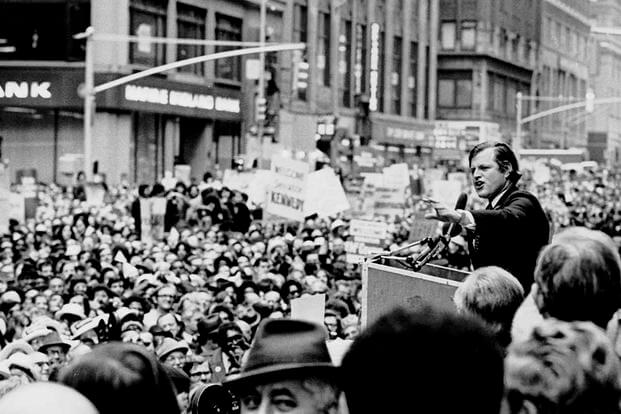
Like his brothers Joe and John, the younger Kennedy was much too young to serve in World War II. He was, however, old enough to serve in the Korean War and enlisted in the U.S. Army for a four-year term. His powerful father intervened, however, and kept him from going to Korea. Kennedy instead spent his enlistment in Europe.
Kennedy famously represented Massachusetts in the U.S. Senate for nearly 47 years. But he also bitterly challenged incumbent President Jimmy Carter, a Democrat, for their party's nomination in 1980, something unusual and dangerous to a sitting president. By doing so, Kennedy created a rift in the party that some say allowed for the rise of Ronald Reagan.
3. Ben Fernandez
Fernandez was born in a boxcar in 1925 in Kansas City, Kansas, the son of illegal immigrants. He grew up to serve in the U.S. Army Air Forces in World War II. He eventually earned an MBA through New York University's night school while working at General Electric during the day, and became a prominent businessman in Los Angeles.
Fernandez sought the GOP nomination in 1980, challenging Ronald Reagan and George H.W. Bush. He was the first Latino to be a real contender for a major political party nomination. He sought the nomination in 1984 and 1988 as well.
4. John Glenn
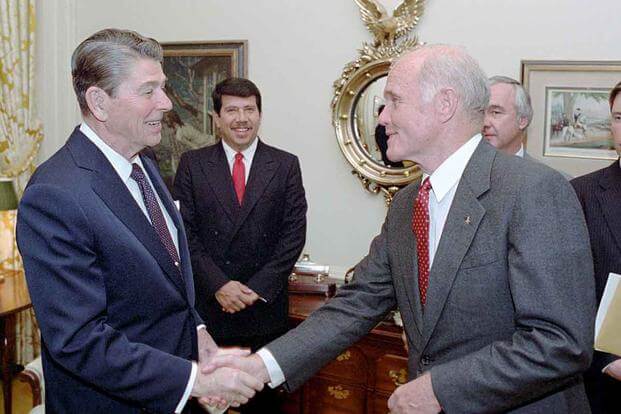
The first American to orbit the Earth was also a Marine Corps fighter pilot serving in World War II and the Korean War. After the wars, he became first a test pilot, then an astronaut, earning the Congressional Space Medal of Honor. He also spent 24 years in the Senate as a Democrat representing Ohio.
In 1984, he entered the Democratic primary against former Vice President Walter Mondale but showed poorly in Iowa and New Hampshire. He dropped out after devastating losses on Super Tuesday.
5. Paul Simon
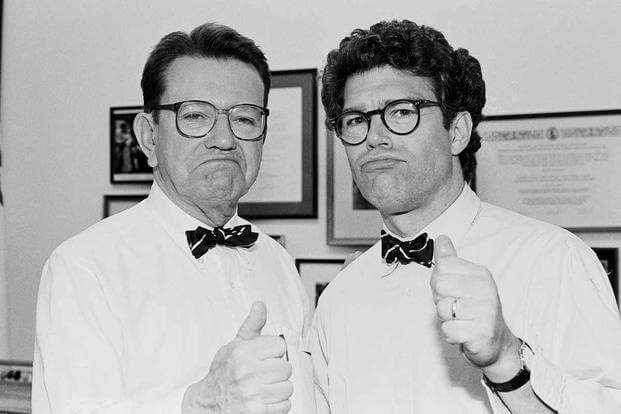
No, not that Paul Simon. Sen. Paul Simon, a Democrat, with his distinctive horn-rimmed glasses and bow tie, represented Illinois in Congress from 1975 until 1997. Between 1951 and 1953, however, he was serving in Army intelligence during the Korean War.
Simon was the front-runner going into the Iowa caucuses in 1988, when Ronald Reagan's term as president was ending. Simon hated opinion polls, believing following polls wasn't real leadership. This showed in the Democratic primaries, as Simon lost handily.
6. Alexander Haig
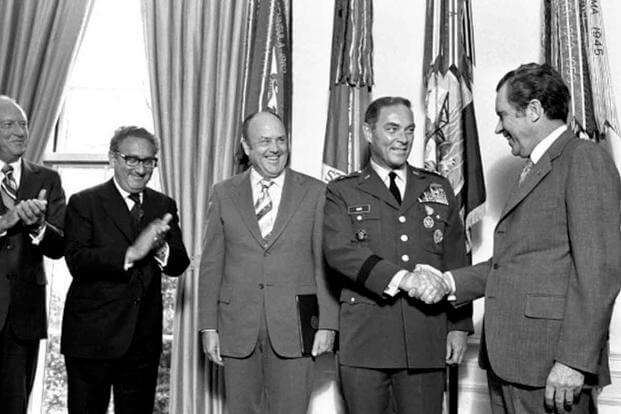
Haig had all the makings of president. He was an Army veteran of Korea and Vietnam, former Supreme Allied commander in Europe, former White House chief of staff and former secretary of state, just to name a few. Although Vice President George H.W. Bush seemed destined to pick up the Republican nomination in 1988, Haig thought Bush lacked the leadership ability to be successful.
It was Haig who first labeled Bush a "wimp" during a primary debate in 1987. But despite great personal effort, Haig could never win more than 1% of primary voters and was forced to drop out.
7. Wesley Clark

While the rest of the Democratic Party was looking to another Army veteran to lead them to victory in 2004, another was fighting to be heard. Clark, a Rhodes scholar, Vietnam and Kosovo veteran and former Supreme Allied commander, Europe, went on only to win Oklahoma in the primary. He dropped out and endorsed John Kerry.
8. Mike Gravel
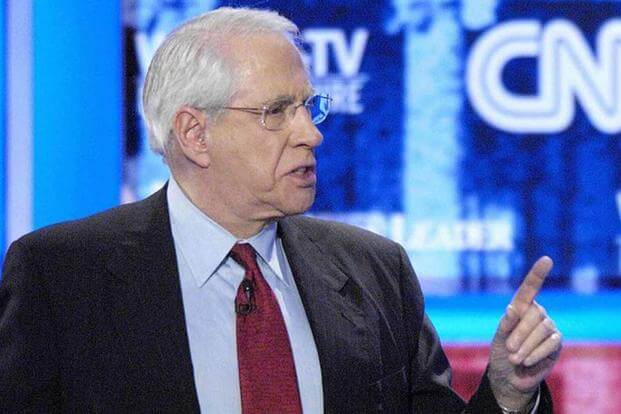
Gravel enlisted to join U.S. Army counterintelligence in 1951 and was eventually sent to officer candidate school at Fort Benning, Georgia. He expected a tour in the Korean War but was sent to West Germany instead. After leaving the military, he entered politics, eventually serving as U.S. senator from Alaska between 1968 and 1981. It was in the Senate that Gravel, anti-war and anti-draft, helped release the Pentagon Papers in 1971.
The former senator ran for president in 2008 and 2020, when the field of Democrats was considered open. Gravel's left-wing positions kept him from garnering enough popularity to make the debate stages, and he was forced to drop out.
Gravel supported, among other ideas, a universal basic income and a non-interventionist foreign policy.
-- Blake Stilwell can be reached at blake.stilwell@military.com. He can also be found on Twitter @blakestilwell or on Facebook.
Want to Learn More About Military Life?
Whether you're thinking of joining the military, looking for post-military careers or keeping up with military life and benefits, Military.com has you covered. Subscribe to Military.com to have military news, updates and resources delivered directly to your inbox.
















